Early this year when farmers in the region were selling tomatoes at a throwaway price, Maharashtra’s Nitin Ramesh Dhingre took a smart decision. He converted the fresh produce into dried products using a solar dryer.
“When there is enough supply in the market, prices reduce. Earlier, we were selling tomatoes for Rs 50 per crate of 20 kilos, which comes to Rs 2.5 for 1 kg. We were unable to even get its cost of production. Additionally, we have to spend on harvesting the crop and transporting it to the market,” the 38-year-old farmer tells The Better India.
“Since last December, I started drying the excess produce. For the same quantity, for which I would get Rs 50, now I earn Rs 350,” adds Nitin, who grows tomatoes, grapes, and onions on a five-acre land in his village Matur.
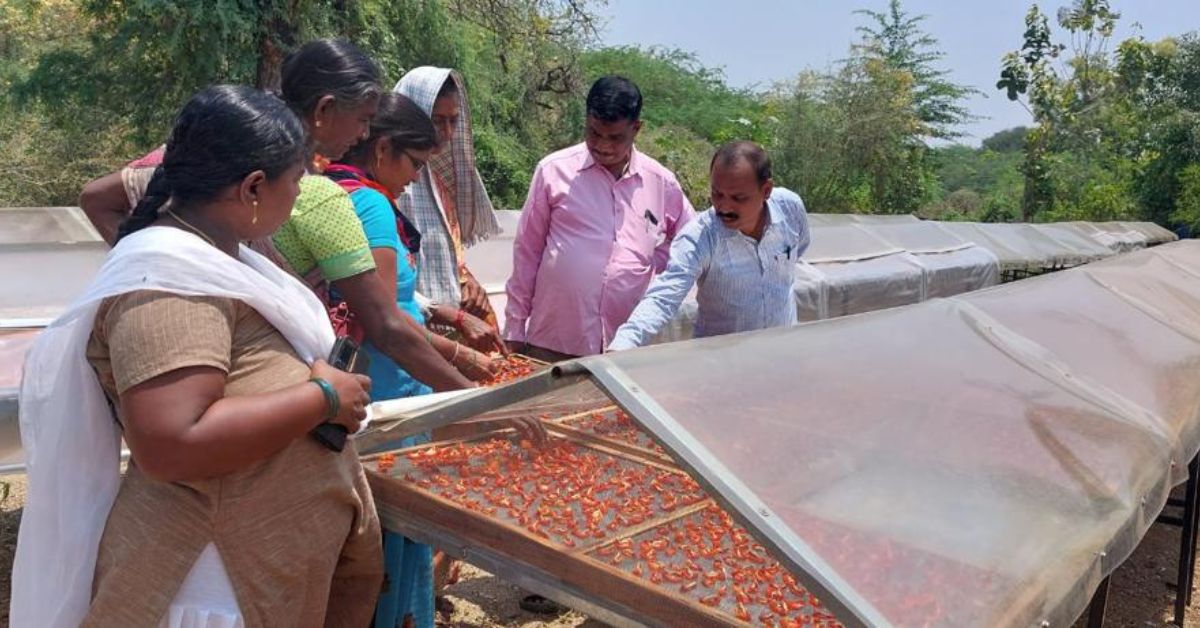
In the past five months, he has been able to earn an additional income of Rs 1 lakh by selling excess produce that would otherwise go to waste. “Initially, many farmers questioned me on why was I investing in a solar dryer and what benefit it could bring me. They also mocked me saying it would not be a profitable decision, but today, they themselves are willing to use the solar dryers,” smiles Nitin.
Along with 13 farmers, he has been able to install a three-tier solar dryer with the capacity to simultaneously dry up to 500 kg of produce in a single cycle. Like Nitin, at least 50,000 farmers across the country have been able to reap benefits from excess produce, thanks to Indore-based Varun Raheja.
Varun runs Raheja Solar Food Processing Pvt Ltd to help farmers increase the shelf life of their produce and derive better income from it.
Foldable solar dryers at the rescue
Varun, a mechanical engineering graduate, spent four years of his college focusing on researching farmer suicide rates and ways to increase their income.
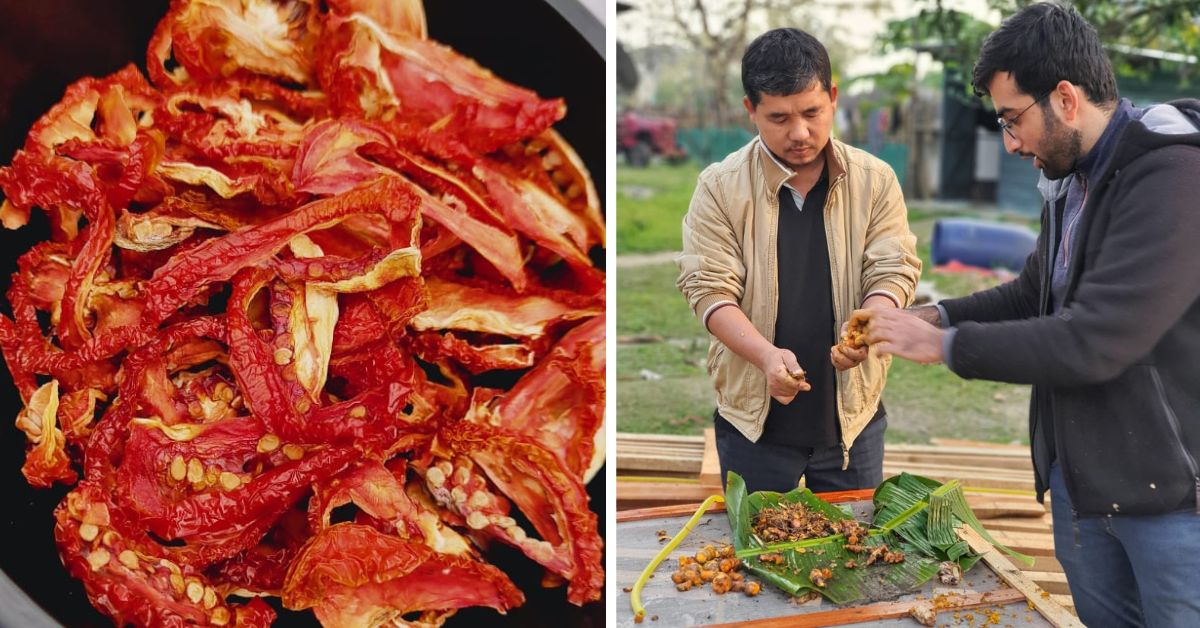
“I love nature and I hate waste. Whenever I see a fruit coming out of a tree that is just dependent on soil and water, I perceive it as magic. Whenever I saw farmers throwing their produce, I would wonder about ways to preserve it so that they can sell it for a better price. I found solar dryers as a sustainable choice,” the 26-year-old tells The Better India.
Since his first year in college, Varun did an internship under Padma Shri Janak Palta McGilligan, who teaches the advantages of solar power to students in her learning centre. By the end of engineering, he came up with a solution to help farmers turn excess produce into value-added products by using solar dryers.
To achieve this, he applied his mechanical engineering expertise to enhance solar dryers, creating foldable and portable ones with capacities ranging from 20 to 100 kilos.
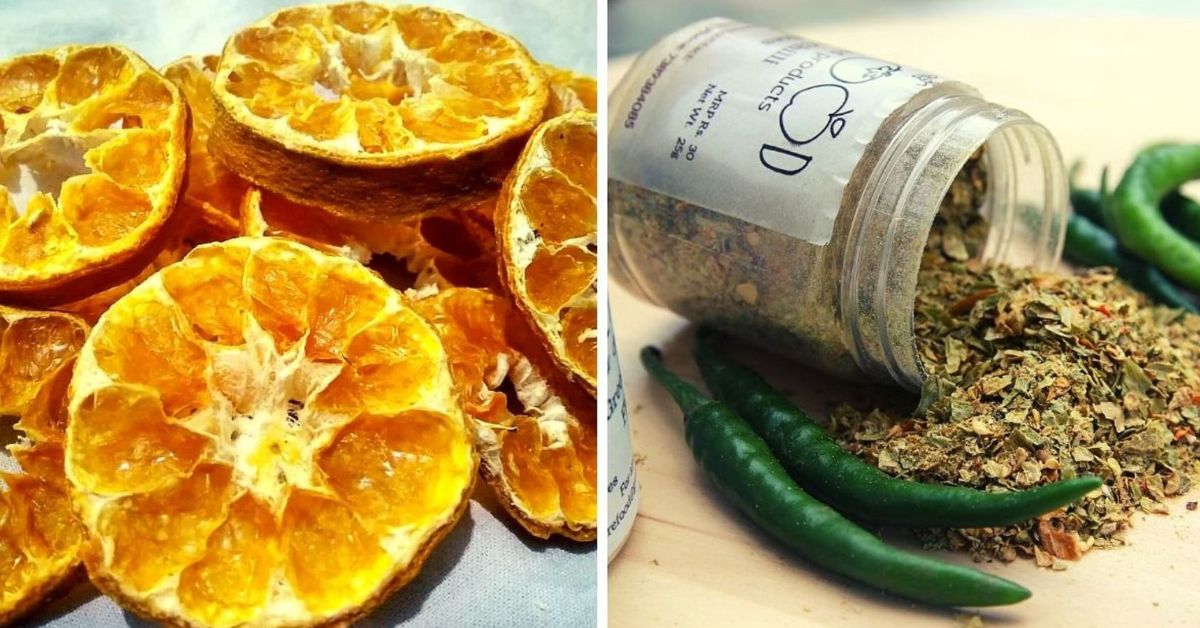
“We have two types of designs — the first is foldable and portable, and the other is a fixed polyhouse design. We have designed foldable ones, especially for small and marginal farmers. These are 40 feet long solar dryers that can be folded into a five-foot box. This helps us install them in remote locations,” says Varun, who has priced a 20 kg solar dryer at Rs 24,000 — at least half the price of those available in the market. Starting from five kg, he has solar dryers up to a capacity of 1,000 kg.
So far, he has installed over 3,500 solar dryers in the rural and remote farms of the country including Kashmir, Chhattisgarh, Madhya Pradesh, Manipur, Arunachal and Gujarat. Every month, the farmers are able to monthly process 115 metric tonnes of fresh produce, which would otherwise go to waste, into useful products like dry powder, flakes, and toppings.
“We have reached out to farmers in remote areas where they cannot access the market easily. For example, pineapples grown in Manipur are sold at Rs 250 per piece in markets like Delhi and Mumbai. But locally, they have a value of Rs 5. Still, a bulk of the produce is not able to reach the outside markets,” he shares.
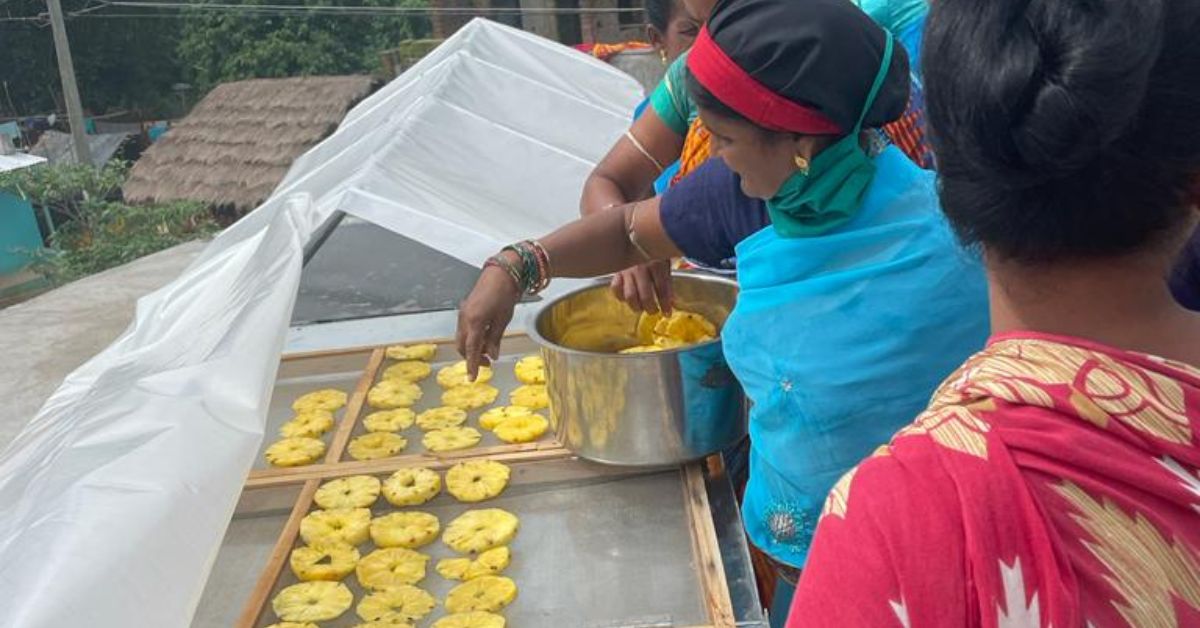
“So, we are able to help them process excess produce in tribal remote areas and get a better income. We have been able to boost farm income by 50 percent,” he adds.
Increasing shelf life by a year
Working on a self-sustainable model, the solar dryers do not require power or maintenance. In the water-proof dryers, slices of vegetables are placed and within two to three days, the produce is sun-dried and ready to be converted into value-added products.
For example, sun-dried tomatoes are used to prepare oats and soups as well as pizza toppings. Raw bananas are converted into banana chips, grapes into raisins, and onions into onion flakes. Varun says, “Every vegetable and fruit, even a watermelon, can be dried into a value-added product. There is an unlimited scope and demand for such products.”
Interestingly, the dryer dehydrates moisture of the fresh produce in such a way that it retains the taste, colour, aroma, and nutrients of the product, he says. Not only this but the shelf life of perishable food products is also increased to a minimum of one year or more without using any additives or preservatives.
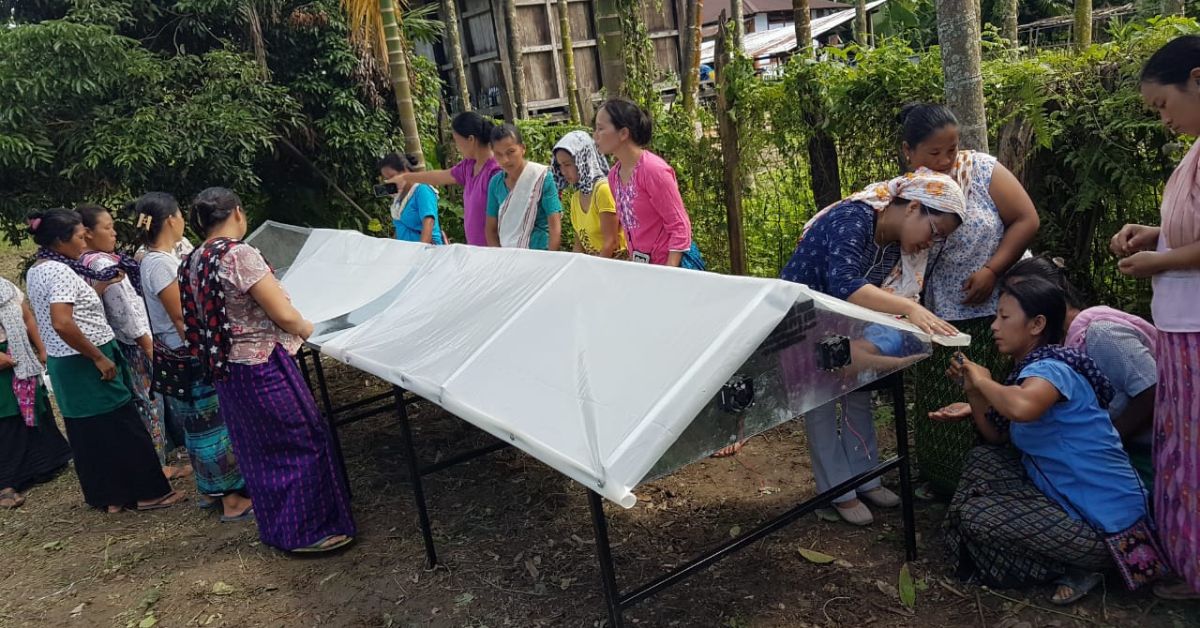
Varun has partnered with at least 170 organisations like Sahaydri Farms, PRADAN, and TATA Trust to engage with farmers at the grassroots level. After installing solar dryers, his team trains them to convert the produce into dried products.
Other than this, he also supports farmers in the marketing of their dried products by selling them to their network of 200 FMCG companies in India. At the decentralised collection centres established in almost every state, the dried products are collected. After quality checks and sorting based on colour and size, the products are sterilised and packaged to be supplied to FMCG brands like Happilo and Chaayos.
“We are not just selling solar dryers, we are building an ecosystem where farmers learn how to practise this technology,” says Varun, who aims to onboard three lakh farmers by the year-end.
“Honestly, I had never imagined that I would even reach this level. It is unbelievable most of the time that we have been able to reach the remotest locations across the country. Currently, I am working on a model in which I am able to utilise papaya peels and seeds in the cosmetic industry. And thereby help farmers double their income,” he adds.
Edited by Pranita Bhat; All photos courtesy: Raheja Solar Food Processing Pvt Ltd.
No comments:
Post a Comment